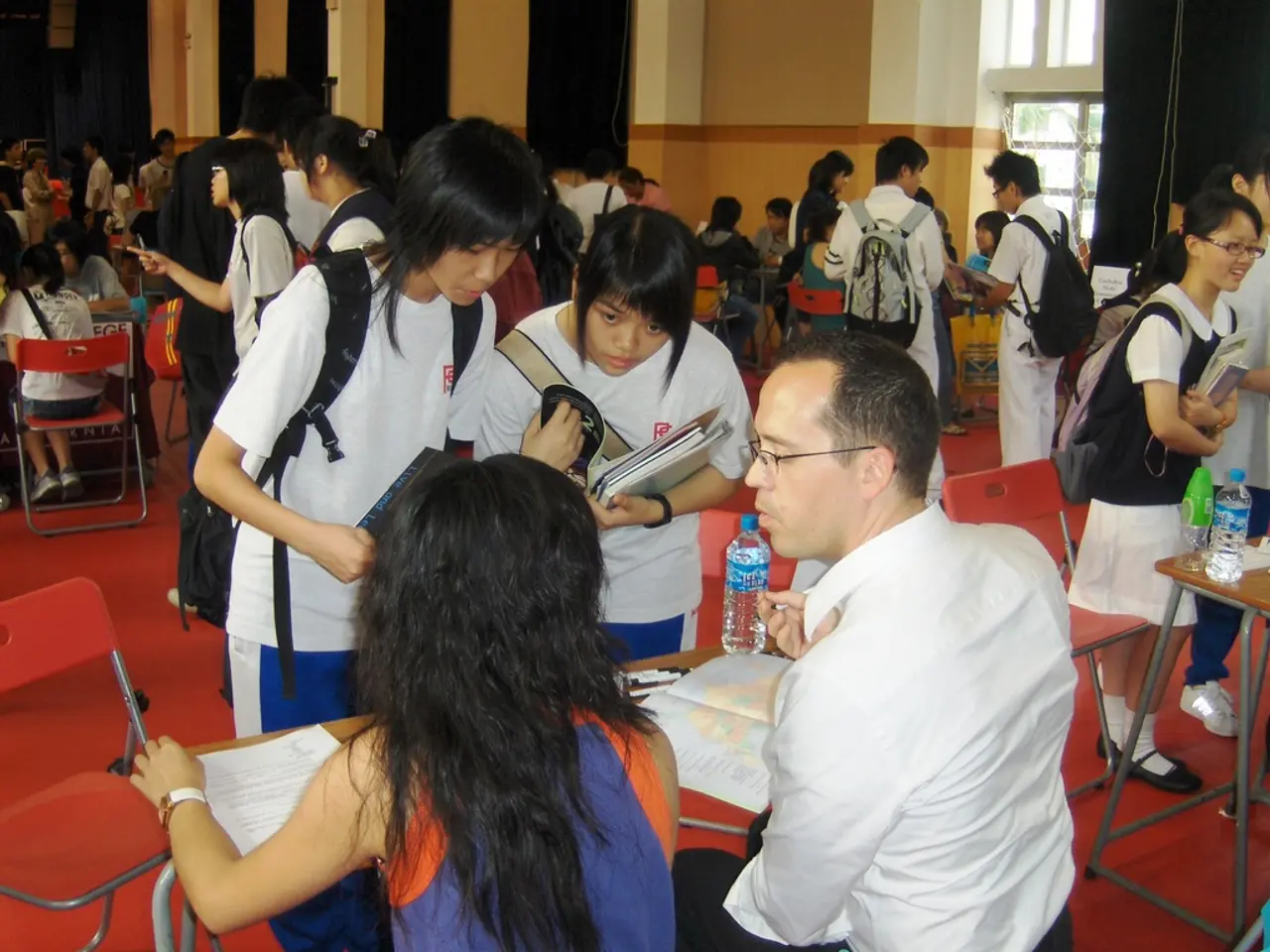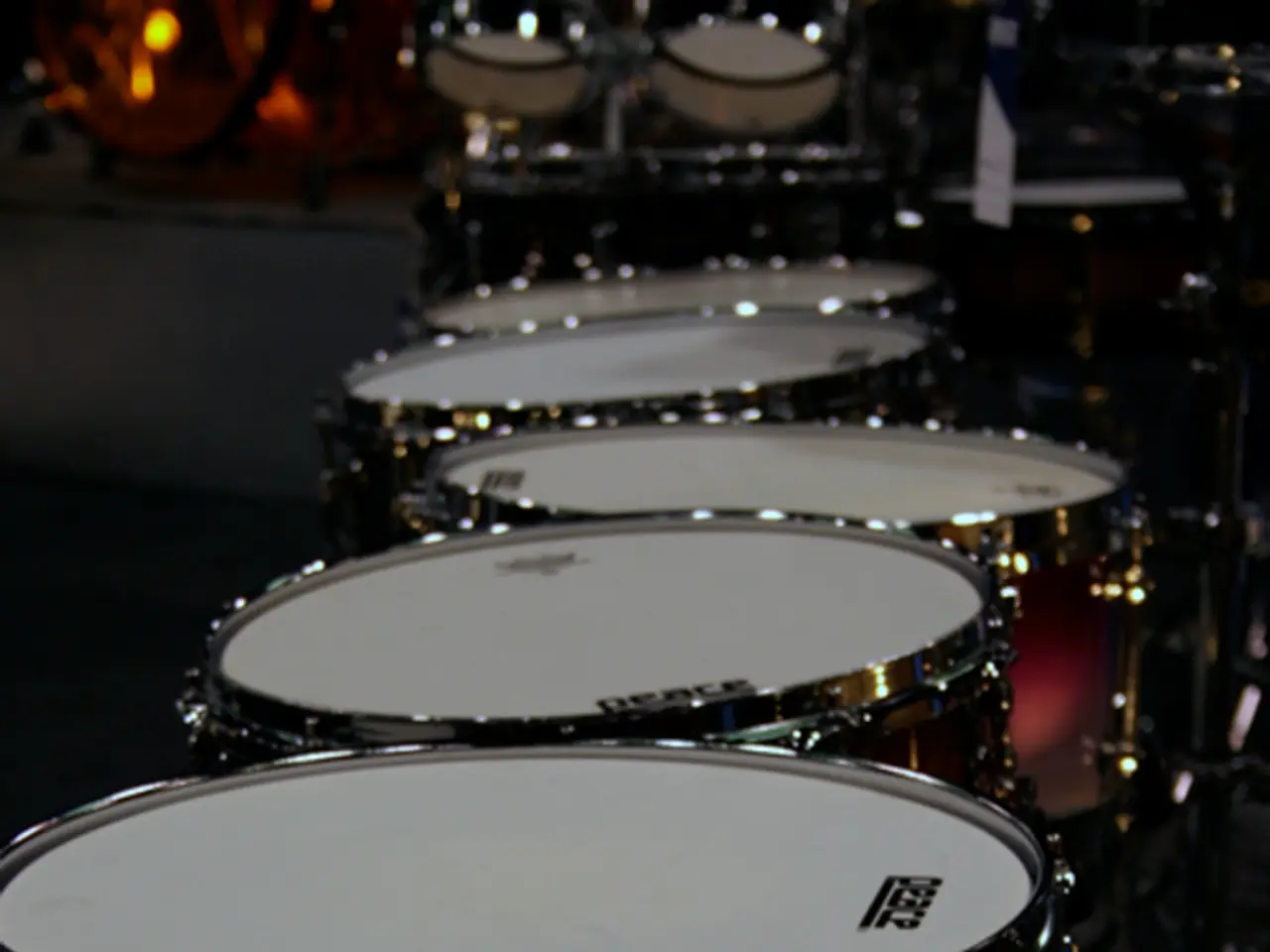Over 50 Controversial Topics Ideal for Science Debates and Presentations for Pupils at School
In the realm of education, science debates and presentations have emerged as a powerful tool to foster intellectual growth and engage young minds. These activities are designed to be fun, interactive, and idea-driven, catering to students from Class 4 to Class 10, middle school, and high school levels.
For the younger students (Classes 4-6), the focus is on topics that are simple and engaging, such as the sun vs moon, science vs magic, robots vs humans, plants thinking, cartoons, home experiments, space vs ocean, dinosaurs vs robots, strength vs intelligence, and smartwatches in school. As students progress, the topics become more complex, delving into photophsynthesis, states of matter, the solar system, magnets, water conservation, simple machines, the human digestive system, the brain, static electricity, pollution, and the water cycle.
High school students are introduced to advanced topics like the science behind electric vehicles, AI in the medical field, biotechnology, climate change, nanotechnology, renewable energy, space missions, IoT, CRISPR gene editing, and cybersecurity. Debate topics for this age group include discussions on human cloning, artificial intelligence, nuclear energy, genetically modified foods, space exploration, science and religion, animal testing, electric vehicles, AI replacing doctors, and climate change reversal.
These activities serve multiple purposes. They develop critical thinking skills by analysing data and constructing reasoned arguments, enhance research abilities through in-depth study of scientific publications and viewpoints, and improve communication skills by teaching students to explain complex scientific concepts clearly and persuasively. They also encourage ethical awareness by examining the societal implications of scientific advancements and foster curiosity and a sustained interest in current and future scientific issues.
Engaging in debates and presentations helps students learn to stay calm under pressure, practice civil discourse, and refine public speaking abilities. This contributes to emotional regulation and effective communication even in challenging situations. Furthermore, participating in scientific presentations can inspire creativity and innovation, as students work collaboratively on projects that address modern problems, often requiring original research, design thinking, and sustainability considerations. Presenting their work to peers and experts builds confidence and hones their ability to share scientific ideas effectively.
The benefits of these activities extend beyond academic growth. They provide an opportunity for students to explore a wide range of science topics, from renewable energy to space exploration, fostering a lifelong interest in science. The list provided in this article includes over 50 science debate topics and presentation ideas for various age groups, ensuring there's something for everyone.
References: [1] [Source for benefits of science debates and presentations] [2] [Source for benefits of science debates and presentations] [3] [Source for benefits of science debates and presentations]
Science and education-and-self-development intersect through research-based debates and interactive presentations, fostering intellectual growth for students of diverse age groups, from middle school to high school. These learning opportunities encompass topics ranging from basic concepts such as the sun vs moon, photophsycs, and states of matter, to advanced topics like AI in medicine, climate change, space missions, and cybersecurity.




